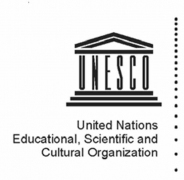Development Finance International
5 May- Equity of Spending Within Countries
 At the request of multiple international organisations and CSOs, DFI has begun analysing breakdowns of spending by province, region or district within countries so as to assess whether spending is equitable in terms of being related to need, poverty or other indicators or factors. Analysis has so far been completed for Guatemala, India, Mozambique, Peru, South Africa, Spain and Uganda. A summary of findings will be posted on the GSW site shortly.
At the request of multiple international organisations and CSOs, DFI has begun analysing breakdowns of spending by province, region or district within countries so as to assess whether spending is equitable in terms of being related to need, poverty or other indicators or factors. Analysis has so far been completed for Guatemala, India, Mozambique, Peru, South Africa, Spain and Uganda. A summary of findings will be posted on the GSW site shortly.
17 April - High Remittance 'super tax' Costs Africa $1.8 billion a Year
 An ODI study reveals that Africans are losing $1.8 billion a year due to high fees levied on funds sent from abroad by relatives. The report found that African faces some of the highest charges in the world for international transfers and claims that reducing African charges to the global average would generate enough revenue "to put some 14 million children into school, almost half of the out-of-school total in the region, and provide safe water to 21 million people". In a context where global remittance charges are meant to be cut by 5% by 2014, the think-thank urges governments to increase competition in money transfer remittances and to establish greater transparency on how fees are set by all market operators.
An ODI study reveals that Africans are losing $1.8 billion a year due to high fees levied on funds sent from abroad by relatives. The report found that African faces some of the highest charges in the world for international transfers and claims that reducing African charges to the global average would generate enough revenue "to put some 14 million children into school, almost half of the out-of-school total in the region, and provide safe water to 21 million people". In a context where global remittance charges are meant to be cut by 5% by 2014, the think-thank urges governments to increase competition in money transfer remittances and to establish greater transparency on how fees are set by all market operators.
14 April - Making Development Cooperation More Effective?
 OECD and UNDP have produced the first progress report on implementing the Busan Global Partnership for Effective Development Cooperation. The report shows virtually no progress since 2010 on untying or using country systems, and three indicators – on civil society space, private sector engagement, and use of country results frameworks, are still being “piloted.” The only clear areas of progress are on aid transparency, putting aid through country budgets, and tracking allocations for gender equality. Interestingly, the report shows that South-South providers perform better on putting aid on budget, and on predictability. Much more will need to be done to meet the targets set in Busan for 2015.
OECD and UNDP have produced the first progress report on implementing the Busan Global Partnership for Effective Development Cooperation. The report shows virtually no progress since 2010 on untying or using country systems, and three indicators – on civil society space, private sector engagement, and use of country results frameworks, are still being “piloted.” The only clear areas of progress are on aid transparency, putting aid through country budgets, and tracking allocations for gender equality. Interestingly, the report shows that South-South providers perform better on putting aid on budget, and on predictability. Much more will need to be done to meet the targets set in Busan for 2015.
7-15 April - GSW Discussed in Washington and New York
 DFI held discussions with UN agencies and CSOs in Washington and New York about future cooperation on government spending data and analysis, as well as on ensuring that monitoring of government spending is a key component of the monitoring framework for the post-2015 global development goals. For more details please contact Matthew Martin.
DFI held discussions with UN agencies and CSOs in Washington and New York about future cooperation on government spending data and analysis, as well as on ensuring that monitoring of government spending is a key component of the monitoring framework for the post-2015 global development goals. For more details please contact Matthew Martin.
15 April - Disaggregated Education Data
 UNESCO have commission DFI to deepen the Government Spending Watch analysis of education spending by disaggregating it by level (pre-primary, primary, secondary, tertiary), type (capital, wages and non-wage recurrent) and funding source (government revenue and donors) for approximately 50 countries. The database and an analytical report will form a background paper for the 2014 Education for All Global Monitoring Report and be available thereafter on the GSW site as a public good.
UNESCO have commission DFI to deepen the Government Spending Watch analysis of education spending by disaggregating it by level (pre-primary, primary, secondary, tertiary), type (capital, wages and non-wage recurrent) and funding source (government revenue and donors) for approximately 50 countries. The database and an analytical report will form a background paper for the 2014 Education for All Global Monitoring Report and be available thereafter on the GSW site as a public good.








